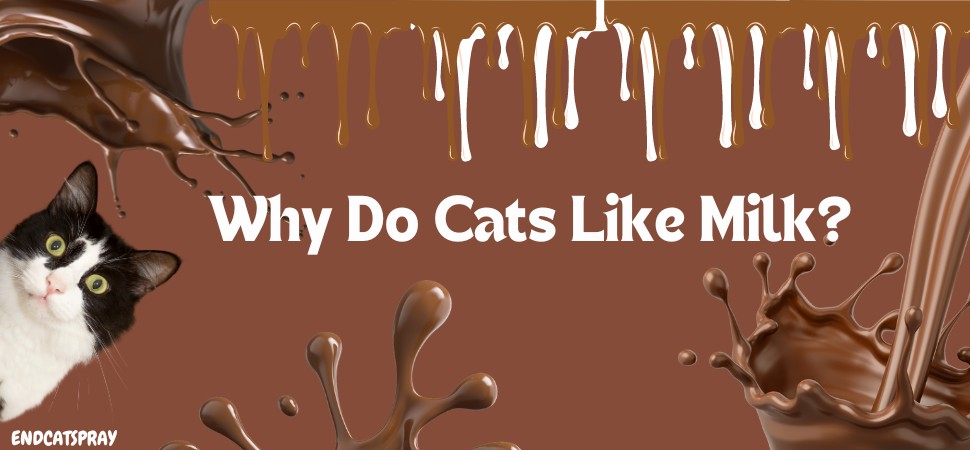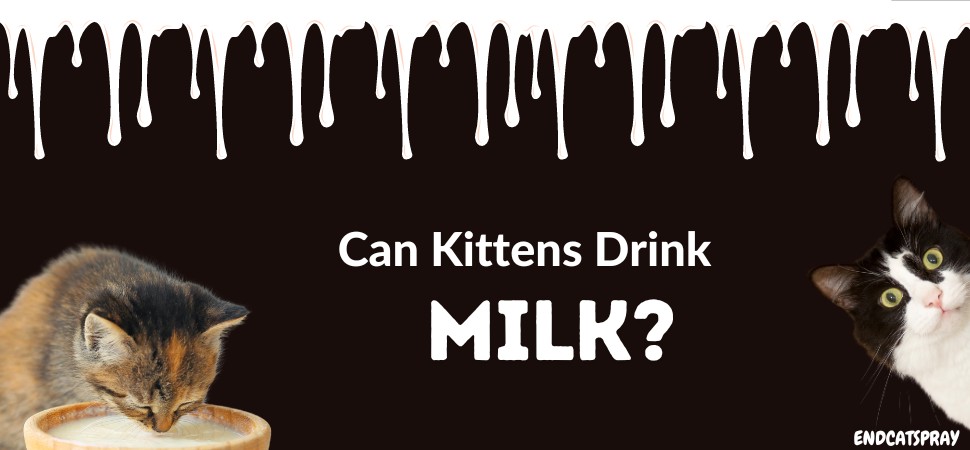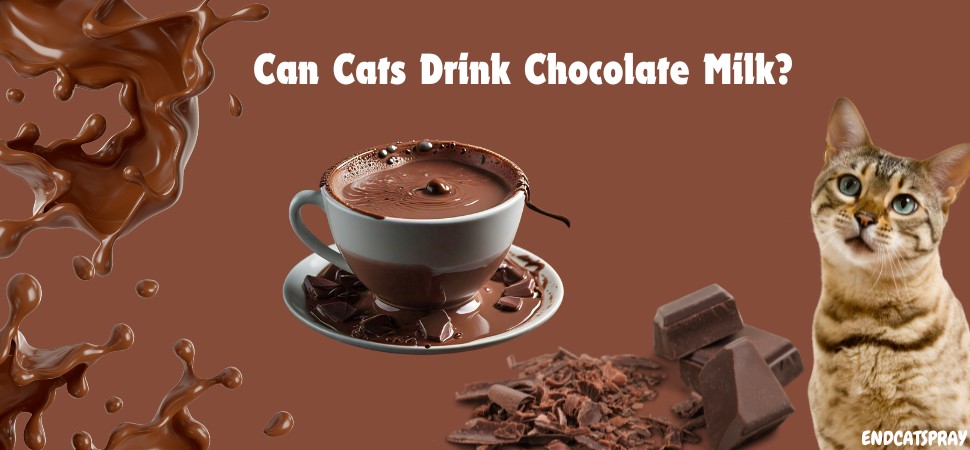As a cat owner, I like it when my feline friend explores my kitchen. When sharing my treats, something as yummy as chocolate milk, it is very important to know whether it is safe for my queen. In this blog, I will address the following question: Can cats drink chocolate milk?
Cats should not drink chocolate milk. We must keep harmful foods away from our cats. We should try not to feed our cats everything we eat, as it can be toxic to cats, and they might get sick.
Key Takeaways
- Cats should not drink chocolate milk.
- In cats, lactose-free benefits are so limited that it can still upset the cat’s stomach.
- Yes, kittens can drink the milk. Which type of milk that kittens should consume matters a lot.
Can Cats Drink Chocolate Milk:
One of the most asked questions as a fellow cat owner is, can cats drink chocolate Milk? Cats should avoid chocolate milk and things made out of chocolate.
Some chemicals in chocolate, like caffeine and Theobromine, are toxic to the cat’s body. These compounds are very harmful to cats as they cause many health-related issues—caffeine and Theobromine cause vomiting, rapid breathing, and diarrhea in most cats.
It is seen that to most cats, these chemical compounds are toxic and cause seizures. Even if the consistency of the Theobromine is diluted or in tiny amounts, it still causes many health issues in cats. We must avoid these risks for the better health of our feline friends.
If I talk about milk, kittens are okay with it because they have lactase enzymes in their bodies that properly digest milk. Adult cats, on the other hand, are lactose intolerant. Being lactose intolerant means that the cats do not have the proper enzymes (Lactase) to digest milk.
They often get belly cramps and diarrhoea. To avoid these risks, I keep chocolate milk and things that have chocolate in them away from my cats and rather keep nutritious treats to cater to their dietary needs. You should also keep the toxic-to-cat stuff away from them for their better and longer life.
Can Cats Drink Lactose-Free Milk?
Lactose-free milk is considered a good and digestible option for human lactose intolerance. In cats, lactose-free benefits are so limited that it can still upset the cat’s stomach. The lactose-free milk has sugar, fats, and other components that are not very good for the health of our feline friends.
Sugar in cat’s bodies can cause stomach cramps and diarrhoea as well. I knew when my cat drank milk, and it was so stressful for me to watch the aftermath of this act. Cats don’t know if milk is good for them; they will drink it, which is more stressful.
I keep these toxic things away from the reach of my cat, and you should, too. Their dietary needs are fulfilled by a proper nutritious diet or cat food, which is mainly meat. It is important to note that some cats are sensitive to dairy products, even if they are lactase-free or sugar-free.
There are many compounds in milk, and we must know how to avoid them for our cats’ health. Lactose-free milk can be given to cats at times as a treat but in very minimal quantities and occasionally. We should never give our cat lactose-free milk regularly.
Is Milk Bad For Cats?
In a popular fantasy opinion, milk is associated with cats, but it is not a dietary option for them as it leads to stomach aches, cramps, and diarrhoea. Only kittens can digest milk, as they have the necessary enzymes, such as lactase, to break down the lactose present in milk into smaller or digestible pieces.
Milk is a type of toxin for cats. Cats don’t have enzymes to break down milk, so they suffer health issues after consuming milk. Milk is also inappropriate for cats because of the sugars present in them. These sugars can cause many gastrointestinal problems in cats.
It is important to know that all dairy products contain compounds that are toxic to cats, so they must be avoided efficiently. Lactose-free milk is also said to be not given to cats regularly, and milk can also cause obesity in cats.
Milk does not provide proper nutrition to cats, which causes obesity. Many cat treats are available in the market with different names, which are also healthier options for cats. We should try to give our cats healthier treats.
Why Do Cats Like Milk?

Cats are often seen showing a lot of interest in milk and drinking it when they see some in sight. Milk has a creamy texture that looks like liquid enriched with high-quality fat, which makes it attractive to cats. Cats are also drawn to milk because it reminds them of their mother’s milk, which is fulfilling and tasty.
Cats don’t know that they are not kittens anymore and have lost the enzymes that break down the compounds in milk. The taste of milk is also slightly sweet, which makes cats drink it and take it as a yummy treat.
Cats naturally love foods with high protein and high-fat value; milk as a whole food makes cats drink it. The sensory appeal of milk is so strong. Still, according to nutritional factors, milk is not at all good for cats and causes gastrointestinal problems like belly cramps, diarrhea, and even seizures.
Can Kittens Drink Milk?

Yes, kittens can drink the milk. Which type of milk that kittens should consume matters a lot. When the kittens are born, they must nurse on their mother’s milk for proper nutrition, as the mother’s milk provides essential nutrients and energy for the kitten’s growth.
Mother’s milk also has antibodies that provide immunity against certain diseases in kittens. For the kitten’s mother, milk has all the essential vitamins, minerals, proteins, and fats to help the kitten’s development.
Around the age of 8 to 10 weeks, kittens are naturally weaned from their mothers; at that stage, they start depending on solid food. In this solid feeding stage, the kittens become lactose intolerant and lose the enzymes needed to digest milk. After weaning, the kittens must not be given milk as a source of nutrition, as it can cause health issues.
Orphaned kittens must not be given solid feed before the age of 8 to 10 weeks. They must be provided with formula milk available in many pet shops near us. This formula milk mimics Mother’s Milk for their nutritional needs.
Best Liquid Feed for Cats:
Mother milk is the best liquid feed for kittens, and KMR is Kitten Milk Replacers. For adult cats, there must be some water drinking place, and many liquid treats enriched with vitamins must be available on the market.
Liquid supplements are said to benefit cats; therapeutic diets in liquid form are available for cats with kidney issues. A liquid treat fortified with essential minerals and enriched with proteins is also available in many forms. We must consult the veterinarian before introducing new liquid feed to our cats to avoid possible risks to our feline friends.
Best Overall Feed for Cats:
Cats are obligate carnivores in nature. They need a nutrition-rich diet that can cater to their specific needs. You should avoid giving your cat everything that you eat. The following are the components that your cat must need for its feed.
Animal-based protein:
As I wrote above, cats are obligate carnivores, so their diet highly depends on protein-rich animal feed like meat or fish. It keeps cats agile and healthier by supporting muscle health.
Fats:
Cats need healthy fats in their feed. Healthy fats with Omega-3 and Omega-6 help improve brain functioning, a healthy coat, and healthy skin.
Essential Fibers:
Fruit pulps like beetroot pulp can be very useful for cats to digest their food properly and keep them healthy overall.
Proper liquid feed:
Moisture is essential in a cat’s feed. The wet and dry feed mixture helps keep the cat hydrated and fresh.
Other Nutrients:
Other nutrients like vitamins, amino acids, and mineral-rich supplements or feed are also essential for the vision and heart health of the cat.
Conclusion:
The image of a cat sipping on milk is fascinating, but we must never forget how bad it can be for our cats. Chocolate milk and even plain milk are considered very health hazards for cats. If the cat has already drank milk, we must monitor the symptoms and ensure it drinks plenty of fresh water to keep it hydrated.
We must consult a veterinarian if we notice an upset stomach, diarrhea, or vomiting in cats and avoid the future occurrence of the same event of a cat drinking milk. We can also prevent cats from accessing milk by separating milk and chocolate-related foods. Hope our article “can cats drink chocolate milk” help you to find better nutritional foods for your cats.
References:










